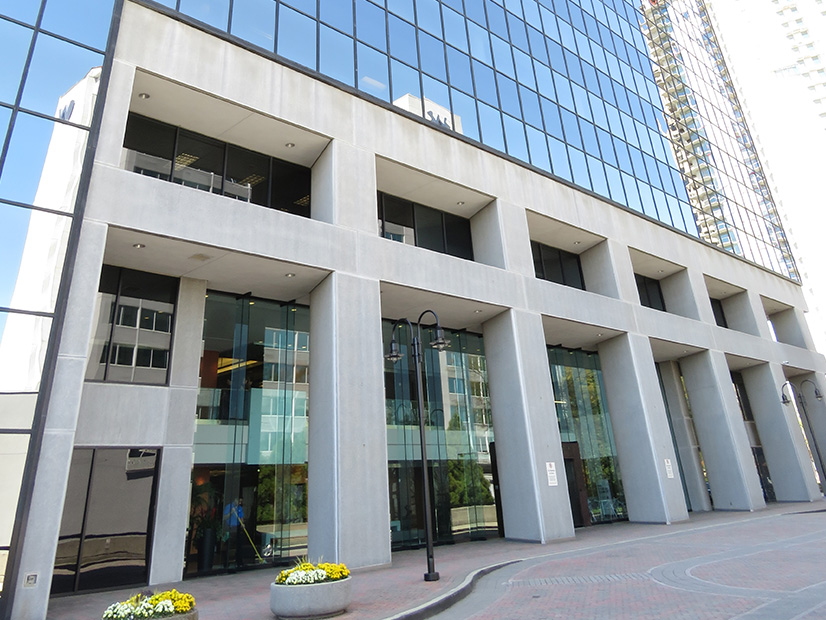The chair of NERC’s Reliability and Security Technical Committee (RSTC) hailed this week’s quarterly meeting in Montreal as a “very productive” gathering that moved forward on several important issues.
“I want to thank everyone for their engagement, their questions, [and] their perspectives on those issues, because we’re going to draw on that heavily over the next year or so,” Chair Rich Hydzik of Avista Utilities said at the conclusion of the informational session that took up the meeting’s second day.
Among the topics that members worked on during the two-day meeting was a standard authorization request (SAR) proposed by NERC’s Inverter-Based Resource Performance Subcommittee (IRPS). The SAR (on page 318 of the agenda) is aimed at revising FAC-001-4 (Facility interconnection requirements) and FAC-002-4 (Facility interconnection studies) to “address the reliability risks presented to the [grid] due to … observed systemic deficiencies in IBR [inverter-based resource] performance and modeling.”
NERC Senior Engineer Alex Shattuck explained the SAR was inspired by recent grid events such as the Odessa disturbances of 2021 and 2022, when the Texas interconnection lost 1.3 GW and 2.6 GW of solar and synchronous generation respectively. (See NERC Repeats IBR Warnings After Second Odessa Event.) Shattuck said the IRPS worked to make sure the potential “enhancements” to both standards are “aligned with FERC Order 901,” which directed NERC to submit reliability standards over several years touching on multiple reliability issues with IBRs.
RSTC members voted to endorse the SAR, which will be submitted to NERC’s Standards Committee for approval. Endorsement by the RSTC is not required to begin the standards development process, but it indicates the proposal has support from the community.
Members also approved a set of revisions to the committee’s charter intended to improve the balance of industry representation at meetings. NERC’s Board of Trustees approved the charter in 2019 when the RSTC was created from the merger of the Planning, Operating and Critical Infrastructure Protection committees. (See NERC Board OKs Committees Merger.)
The committee’s current membership rules permit two voting representatives each from industry sectors 1-10 and 12, along with 10 voting at-large seats. If any sector receives no nominations during the election process, that sector’s seat can be converted into an at-large membership for the remainder of the term.
While the meeting agenda stated this structure was intended to ensure “a full RSTC membership ready to tackle reliability risks,” Candice Castaneda, NERC’s senior legal counsel, said that the number of at-large members had grown beyond NERC’s intentions, reaching 15 at the beginning of 2024.
“This, coupled with the RSTC rule that matters require a two-thirds vote to pass, began causing tension with the sector balance requirements,” Castaneda said. She explained that NERC’s bylaws, along with the Federal Power Act, state that committees “organized on a sector basis must ensure that no two sectors are able to control a vote on a matter, and that no single sector can defeat a matter.” The growth of at-large members created a risk that one or two sectors could reach a dominant position on the committee.
To address these issues, NERC staff proposed to:
-
- Eliminate the at-large conversion process and allow a sector to seek a special election to fill an open seat.
- Remove the numerical cap on the number of representatives from a sector that can serve as at-large members.
- Explicitly direct the RSTC Nominating Subcommittee to prioritize balanced sector representation, including citation of relevant parts of NERC’s Rules of Procedure.
The committee voted to approve the charter revisions, which will be submitted to NERC’s board for approval.




